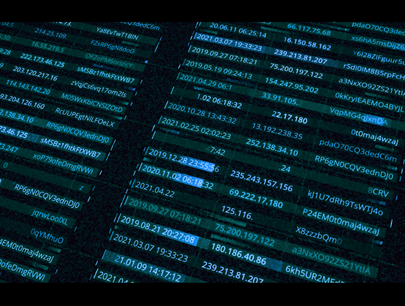If you have devices that are connected to the Internet, you have most likely heard the term IP address. It is one of the most important components to the Internet, yet it is invisible to most users. However, you may have asked yourself: What is an IP address? What do you do with it? What do I need an IP address for?

I can explain the rather abstract IP address to you most easily with an analogy. The letter carrier has a package for you and therefore needs to know where you live. For that he needs your physical address, so he can deliver the package correctly.
The Internet works pretty much the same way here. If you want to open a website, data packets are downloaded to your computer. So your computer asks the server that contains the website for its content. The server now delivers data packets, but it must know where to go. Your IP address is responsible for this. When you made the request, you told the server your IP address and it now knows where to deliver the data packets.
This is of course very simplified, but in principle it is as simple as that. Now, however, there is a difference between IPv4 and IPv6.
In the early days of the Internet, IPv4 addresses were used. A typical IPv4 address looks like this:
192.168.0.1
The address space of IPv4 covers 32 bits. From a purely mathematical point of view, that's 2^32 addresses, or just over 4 billion. Usable, however, are significantly fewer. The number of IPv4 addresses was enough for a long time. After all, not everyone had a cell phone, a laptop, and so on. Complicating matters is the IoT (Internet of Things), where many sensors, refrigerators and so on require an eiogenic IP address. More and more devices are directly connected to the Internet and the number of IPv4 address is simply not enough.
Clearly, you can bridge this with public as well as private addresses and NAT technology. Simply explained, the mailman would deliver the package to your public address and an internal mailman will then deliver the package to the appropriate apartment or department in a company.
So if there are 5 devices behind your home router and your phone wants to open a website, the website's server knows which router to deliver the data packets to. The router is then in turn responsible for the internal delivery.
Nevertheless, IPv4 addresses are becoming scarcer and scarcer and a solution to the problem had to be found.
An IPv6 address is 128 bits long. So there are 2^128 IPv6 addresses. That's in numbers 340,282,366,900,000,000,000,000,000,000,000,000,000 or circa 340 sextillion. Thus on each square millimeter of the earth about 600 quadrillion IPv6 addresses fall. You already see, that we move here fast into the hardly imaginable. An IPv6 address looks for example like this:
fe80::44a8:de0b:cc77:506f
(You may omit one or more consecutive blocks whose value is 0 or 0000 and define it by two consecutive colons, as long as it remains unique. So my address above would be written out: fe80:0:0:44a8:de0b:cc77:506f)
Because there are so many of this address, it also explains why people are pretty generous with assigning IPv6 addresses. If you get a server from a hoster, some will give you a complete sub-address space to use as you wish. IPv6 addresses are really enough there and you don't have to save with them.
An IPv6 address consists of the Network Prefix and the Interface Identifier.
Network Prefix denotes the network, subnet, or address range. The interface identifier in turn defines a host on that network.
There is always discussion about privacy in the context of IPv6. In theory, you could now assign a static IP address to every device on the planet. This makes it possible to uniquely track what your devices are doing on the Internet. Tracking cookies would no longer be necessary because each device could be uniquely identified.
Many telecommunications providers, however, disconnect connections at regular intervals and assign new IP addresses to your devices. Whether this is the case in all countries around the world, however, I don't know.
If you want to be absolutely on the safe side, it's best to protect your devices from tracking with an additional layer of protection. The best VPN providers have leak protection and your IP addresses will remain hidden.
The most important questions quickly summarized.
When you make a request to a server, it needs to know where the data packets are to be delivered. You can compare this with the address of your apartment. If the letter carrier doesn't know your address, he won't know where to deliver the package.
IPv4 is 32 bits and that's a little over 4 billion IP addresses. However, there are already more devices than this address space can handle and new devices are being added quickly that need an IP address. That is why IPv6 was introduced with 128 bits, whereby every square millimeter of the earth can be equipped with 600 quadrillion IP addresses.
